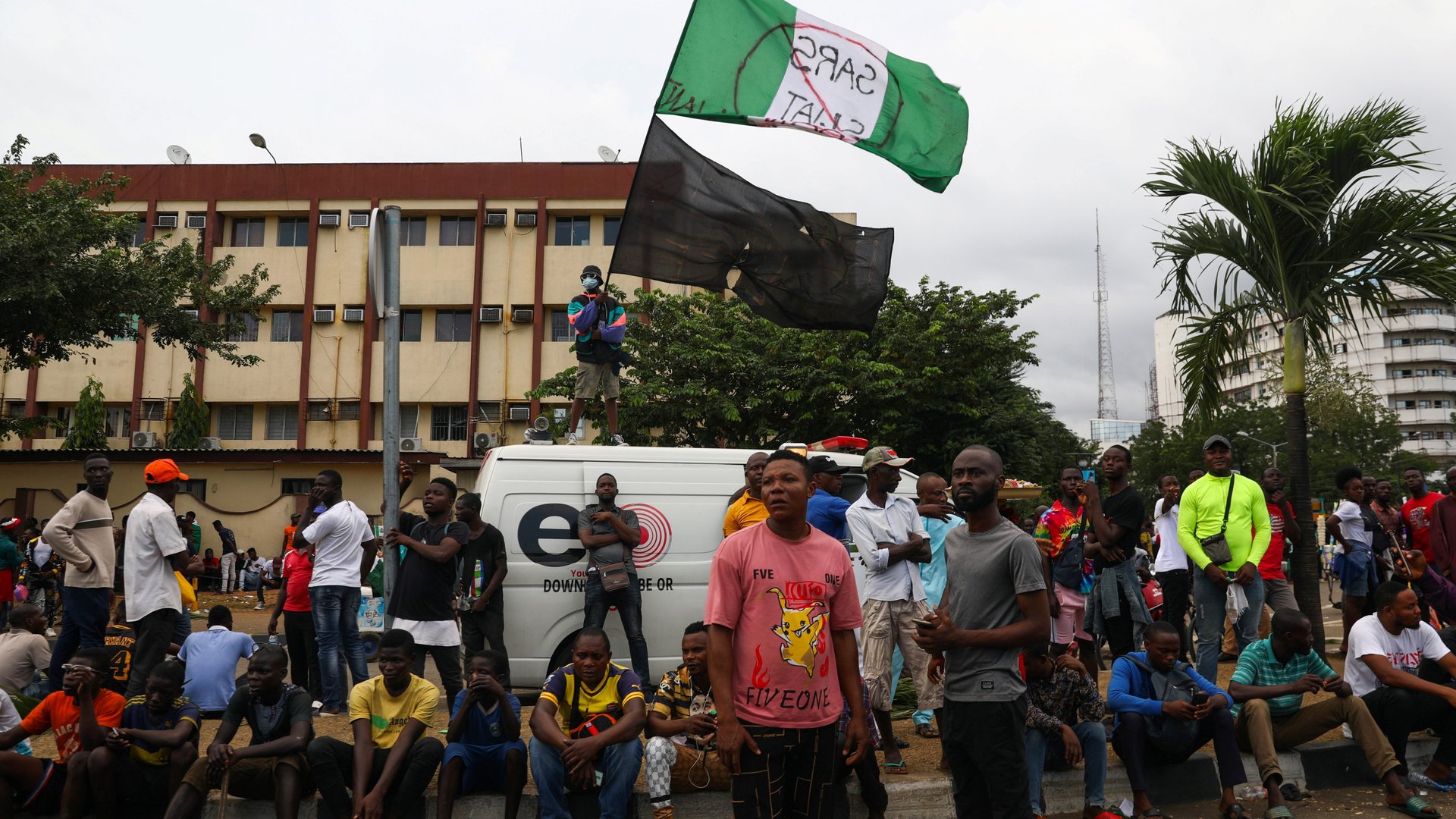Nigerian protesters have been shot at by security forces in Lagos #EndSARS demonstrations
Ongoing youth-led protests against police brutality in Nigeria took a horrific turn on Tuesday (Oct. 20) evening.


Ongoing youth-led protests against police brutality in Nigeria took a horrific turn on Tuesday (Oct. 20) evening.
Following a hastily announced curfew by the Lagos State government in the wake of scattered incidents of violence across the city, hundreds of unarmed protesters remained at Lekki toll gate, a thoroughfare to one of Lagos’ middle class neighborhoods and one of the main protest hubs over the past week.
However, at about 7 PM local time, eyewitness reports as well as video footage showed Nigeria’s army on the scene, firing live rounds into the crowd of unarmed and peaceful protesters.
Eye witness reports confirm the shootings resulted in some deaths but uncertainty remains about the exact number of fatalities. Amnesty International says it “received credible but disturbing evidence of excessive use of force occasioning deaths of protesters at Lekki toll gate in Lagos.” Punch, one of Nigeria’s largest newspapers, has reported there were seven deaths. For its part, the Lagos State government has controversially claimed there were no deaths recorded.
Incidents before the shootings suggest the actions were premeditated as security cameras at the Lekki toll gate were taken down while lights around the area were turned off before the shootings began.
Babajide Sanwo-Olu, the Lagos state governor, says the shootings were carried out by forces “beyond” his direct control,” in a move that appeared an attempt to distance his administration from the incident since governors have no power over the military.
In the meantime, Muhammadu Buhari, Nigeria’s president and commander-in-chief of the armed forces, has still not addressed the nation directly regarding the killings of unarmed protesters. And, despite video evidence to the contrary, the Nigerian army has denied claims that it was involved in the shootings at unarmed protesters.
The ugly turn of events marks a dark day in Nigeria’s history as a democratic nation and evokes memories of decades of military rule and dictatorship in Nigeria. Buhari, who took office in 2015 in a tightly contested democratic election, ruled Nigeria as a military dictator in the 1980s.
With videos of the security forces’ attacks being widely shared on social media Nigeria’s government is starting to come under early international pressure from key figures though notably fellow African leaders, ECOWAS (the West African states), or the African Union have so far not commented publicly.
US presidential candidate Joe Biden issued a statement urging Buhari and the national military “to cease the violent crackdown on protesters in Nigeria, which has already resulted in several deaths.” He added: “The United States must stand with Nigerians who are peacefully demonstrating for police reform and seeking an end to corruption in their democracy.” Former US secretary of state and 2016 presidential candidate Hillary Clinton also condemn the attacks on Twitter.
The #EndSARS protests which have sparked demonstrations across the country came in the wake of long-running instances and allegations of brutality against a special anti-robbery police squad which had instead grown infamous for brazen extortion and extra judicial killings.
But while protesters called for firm action to be taken, specifically with regard to the prosecution of erring SARS officers, the government’s response consisted of scrapping the unit (the fourth such restriction on the unit’s operations in four years) and promises of reforms.
Sign up to the Quartz Africa Weekly Brief here for news and analysis on African business, tech, and innovation in your inbox